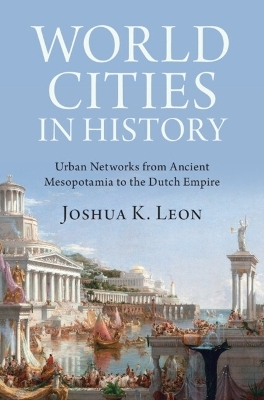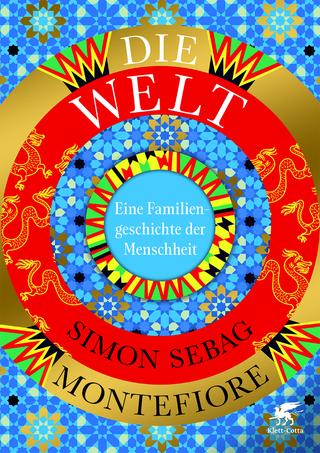
World Cities in History
Urban Networks from Ancient Mesopotamia to the Dutch Empire
Seiten
2024
Cambridge University Press (Verlag)
978-1-009-44497-2 (ISBN)
Cambridge University Press (Verlag)
978-1-009-44497-2 (ISBN)
- Noch nicht erschienen (ca. Januar 2025)
- Versandkostenfrei innerhalb Deutschlands
- Auch auf Rechnung
- Verfügbarkeit in der Filiale vor Ort prüfen
- Artikel merken
Leon demonstrates, in vivid detail, how world cities and urban networks have shaped life over 6,000 years. Asking what it has meant for ordinary people to live in cities transformed by global forces, he offers a fresh, accessible reading of urban history in a compelling theoretical contribution to the field.
Joshua K. Leon explores 6,000 years of urban networks and the politics that drove them, from Uruk in the fourth millennium BCE to Amsterdam's seventeenth-century 'golden age.' He provides a fresh, interdisciplinary reading of significant periods in history, showing how global networks have shaped everyday life. Alongside grand architecture, art and literature, these extraordinary places also innovated ways to exert control over far-flung hinterlands, the labor of their citizens, and rigid class, race and gender divides. Asking what it meant for ordinary people to live in Athens, Rome, Chang'an, or Baghdad - those who built and fed these cities, not just their rulers - he offers one of the few fully rendered applications of world cities theory to historical cases. The result is not only vividly detailed and accessible, but an intriguing and theoretically original contribution to urban history.
Joshua K. Leon explores 6,000 years of urban networks and the politics that drove them, from Uruk in the fourth millennium BCE to Amsterdam's seventeenth-century 'golden age.' He provides a fresh, interdisciplinary reading of significant periods in history, showing how global networks have shaped everyday life. Alongside grand architecture, art and literature, these extraordinary places also innovated ways to exert control over far-flung hinterlands, the labor of their citizens, and rigid class, race and gender divides. Asking what it meant for ordinary people to live in Athens, Rome, Chang'an, or Baghdad - those who built and fed these cities, not just their rulers - he offers one of the few fully rendered applications of world cities theory to historical cases. The result is not only vividly detailed and accessible, but an intriguing and theoretically original contribution to urban history.
Joshua K. Leon is an associate professor of Political Science at Iona University and was the 2022–23 Robert David Lion Gardiner Fellow at New-York Historical Society.
1. Introduction; 2. Origins of urbanization: Mesopotamia; 3. Agora and Emporia: the Greek city-states; 4. Alexandria, alpha city; 5. City networks in the Roman Empire; 6. Tale of two Chang'ans: urban power in Han and Tang China; 7. City-state civilizations: Mesoamerica's urban revolution; 8. Baghdad: crossroads of the universe; 9. Italian communes and the rise of Venice; 10. Profit and power: the Hanseatic Network; 11. Urban power in the Dutch Empire; 12. Reflections: dangers ahead.
| Erscheint lt. Verlag | 31.1.2025 |
|---|---|
| Zusatzinfo | Worked examples or Exercises |
| Verlagsort | Cambridge |
| Sprache | englisch |
| Themenwelt | Geisteswissenschaften ► Geschichte ► Allgemeine Geschichte |
| Sozialwissenschaften ► Politik / Verwaltung ► Vergleichende Politikwissenschaften | |
| ISBN-10 | 1-009-44497-2 / 1009444972 |
| ISBN-13 | 978-1-009-44497-2 / 9781009444972 |
| Zustand | Neuware |
| Haben Sie eine Frage zum Produkt? |
Mehr entdecken
aus dem Bereich
aus dem Bereich
eine Familiengeschichte der Menschheit
Buch | Hardcover (2023)
Klett-Cotta (Verlag)
49,00 €
Eine wahre Geschichte von Schiffbruch, Mord und Meuterei
Buch | Hardcover (2024)
C.Bertelsmann (Verlag)
25,00 €


